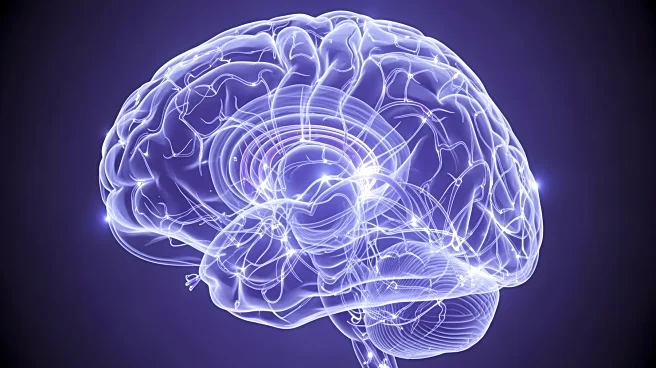What's Happening?
An international study led by Dr. Sophie Townend from the University of Bath has identified similar structural changes in the brains of young people diagnosed with anxiety disorders, depression, ADHD,
and conduct disorder. Published in Biological Psychiatry, the research analyzed brain scans from nearly 9,000 children and adolescents, revealing shared and disorder-specific alterations in brain structure. The study found common brain changes across all four disorders, notably a reduced surface area in regions critical for processing emotions and maintaining awareness of bodily states. The research involved 68 international groups from the ENIGMA Consortium, aiming to understand brain structure and function through large-scale neuroimaging and genetic studies.
Why It's Important?
The findings challenge the traditional approach of studying mental health disorders in isolation, suggesting that treatment strategies could target shared biological mechanisms across multiple conditions. Understanding the common neurobiological threads in different psychiatric disorders can lead to more effective interventions during childhood and adolescence, when the brain is still developing. This research could help clinicians develop strategies that are beneficial for young people with a range of common disorders, potentially reducing the burden on individuals, families, and society.








